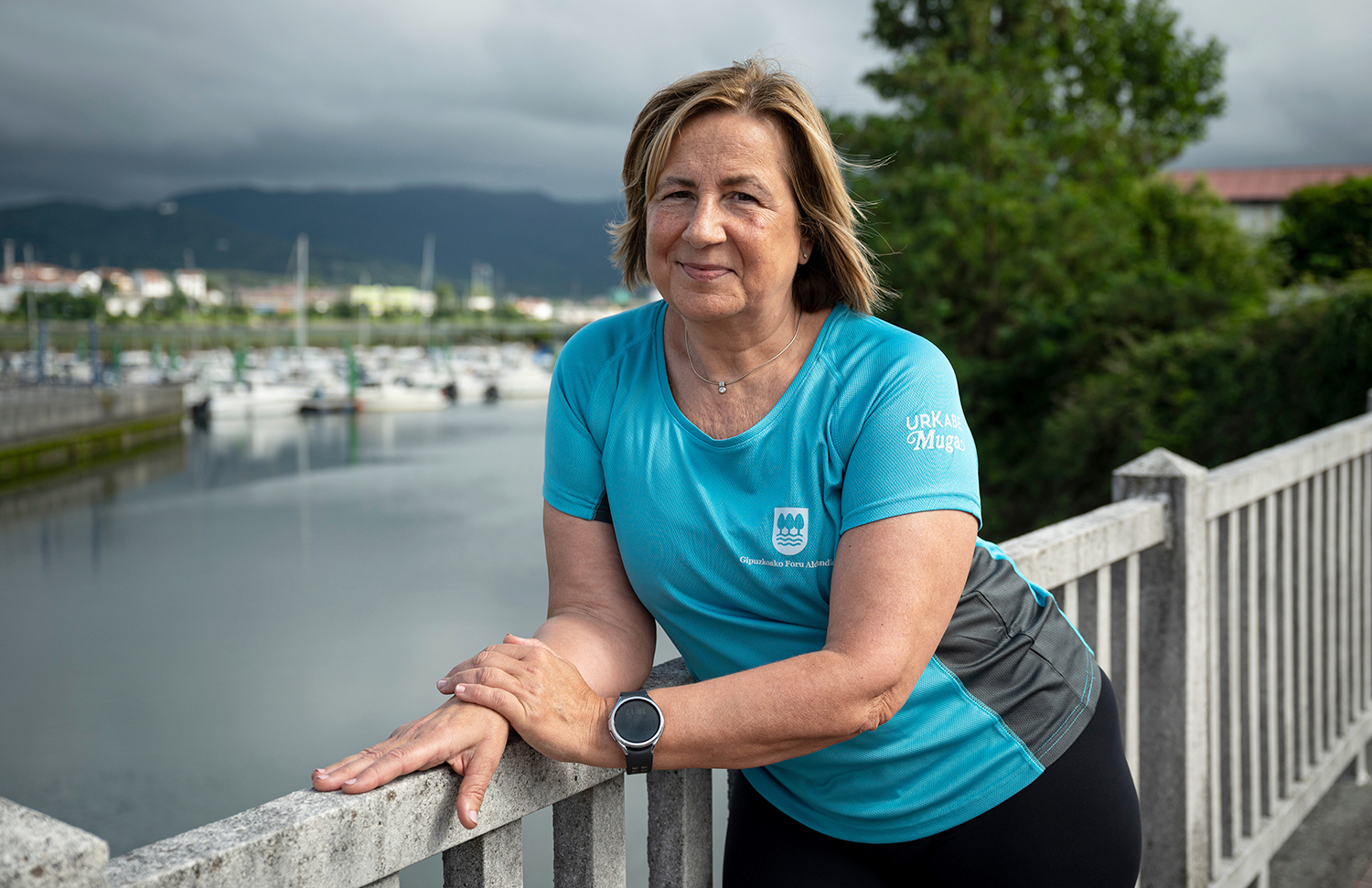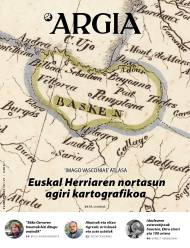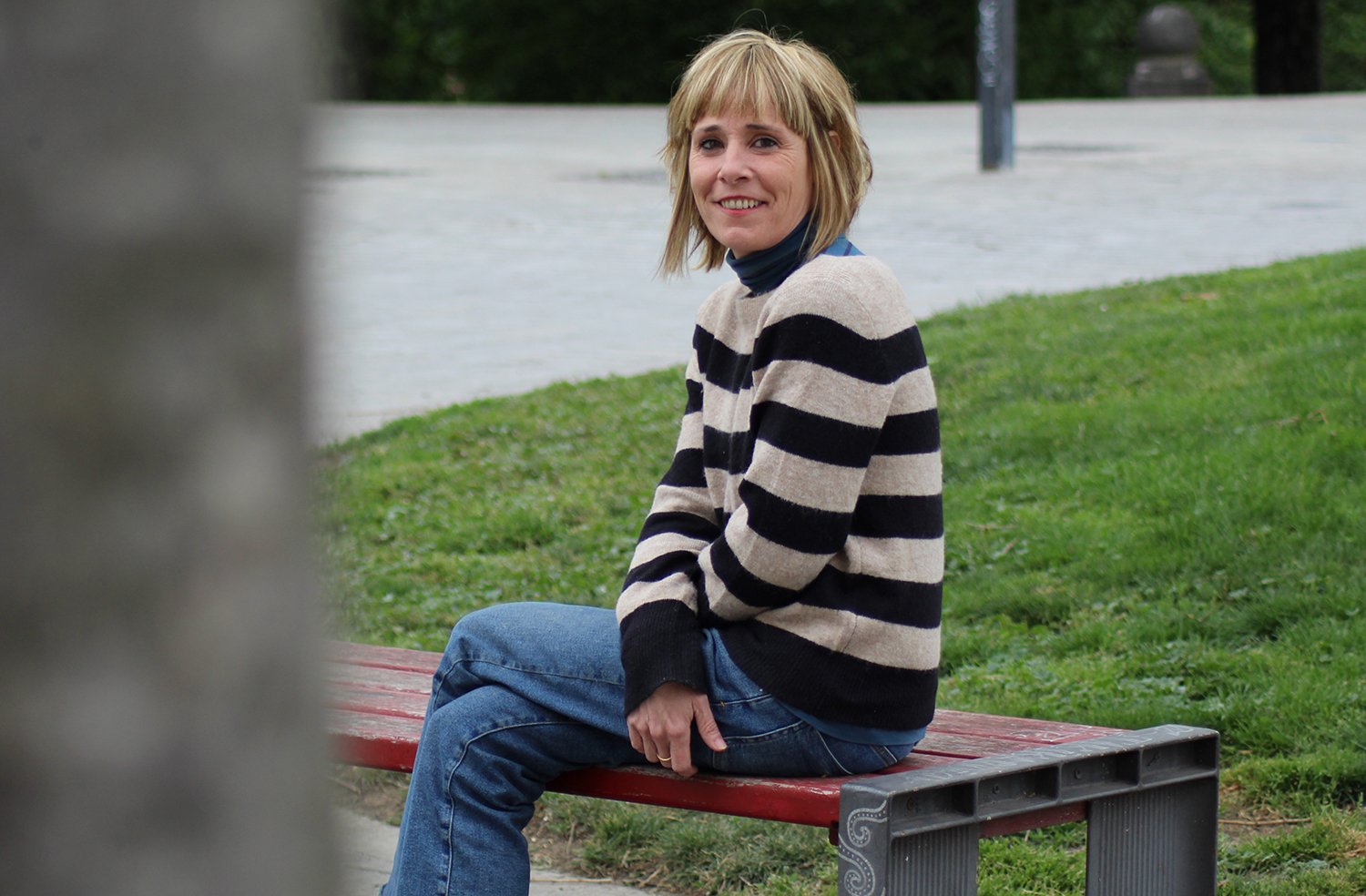"With the Dragon Boat we regained the trust we had in the body"
- Mercedes Ortega Barrena (Bilbao, 1967) has practiced numerous sports such as athletics, surfing paddel and now rowing. He belongs to the Dragon Boat group of the HS2 Surf Center school in Hondarribia. This is a group composed primarily of women who have or have had cancer. Barrena has stressed that it is "very useful" to take care of physical, emotional and psychological health.

Almost ten years ago, Mercedes Ortega Barrena started practicing Paddel Surf with the Club Deportivo Fortuna de Donostia-San Sebastián. It started in this sport because they had to put a prosthesis on their hip and because they wanted to strengthen it. At first, little by little and then he started participating in championships: “It was from Orio to Donostia.” Years later, in 2020, he felt some breast lumps, went to the doctor and told him it was breast cancer: “I decided to continue with the surfing paddel and it came really well. That’s when I saw how important it is to do sport.”
He explained that the cancer process has been “very long” and “hard”, but he wanted to continue practicing sports because it helps him: “When I started chemistry, I asked the oncologist and he told me to continue physical activity. Then they rebuilt my chest and tried to do physical activity as I could. Afterwards, I was very tired of the radio, but I was trying to pull out forces.” He added that it is sometimes “difficult” because of tiredness, but in the end he does well: “I feel better after having done physical activity, especially in nature and in the group. It brings me joy and tranquility.”
About four months ago he was called from the HS2 Surf Center in Hondarribia, where he was informed that he was going to launch a Dragon Boat. It is a nautical sport of Asian origin that is more than 2,000 years old. It is made in a group and is related to the rowing. The goal of the ship is to be a tool for gathering and empowering women who have had or have cancer. “I was very happy when they called me; it made me very excited,” Ortega said. Although most of them have passed the cancer, there are those who have not had it: “They show great empathy and closeness.”
"Little by little we're clearing up doubts, we're talking about our fears and we're talking about treatments."
The HS2 Surf Center is a school-led project that has had to find sponsors because buying and maintaining the boat is "very expensive". The project is supported by the Provincial Council of Gipuzkoa, the City Hall of Hondarribia and associations against cancer in the territory such as Iñurri, Katxalin and AECC. “I am very grateful for the school, for the sponsors and above all for the team.”
Tool for the empowerment of the group
According to Ortega, the Dragon Boat helps many things. From a physical point of view, the movements that should be performed on the rowing contribute to strengthen the muscles weakened by the interventions: “My chest and lymph nodes and a piece of back muscle were removed to reconstruct my chest. I’ve lost strength, but slowly I’m recovering.”
So far it has not had to resort to associations of people with or with breast cancer. However, on the emotional and psychological level it has also been “very useful” to be part of a group: “We are gradually clearing up doubts, talking about our fears and commenting on the treatments.” All of this is done between guts. “There are strange situations when we are going to take the boat. It weighs a lot, and in one arm we have less force than in the other. Then we have to change place and from time to time we have to row with the weakest arm.”
He says it's nice to talk to people living a similar process and share experiences: “It’s good that others talk knowing what you’re talking about. When we talk about tiredness, people can't imagine what tiredness it is, nor how many things go through the head. The process is, without a doubt, hard, but with this type of tools you pass more easily.”
He feels happy and thrown into the group, because they take care of each other and have created a space of trust: “With the Dragon Boat we liberate ourselves, regain trust in the body and feel better with ourselves.” Therefore, it considers that it is “important” and “effective” and that it is not any project: “It has been a very nice experience and we have a very good atmosphere. I hope that more women who have had cancer will come closer.”
A PART OF THE BODY
"My head, I've got it clear. In my case, the most important thing about cancer has been the head, how I took the news and how I've behaved in life. I thank the oncologist because I thought chemo would be harder. The oncologist told me he would thank me, because merit is in my attitude.












